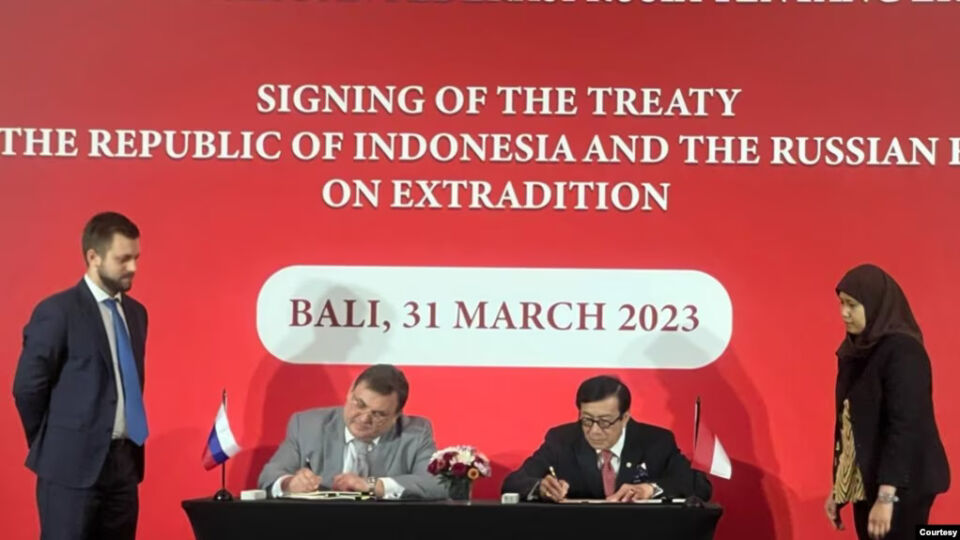As more and more Russians visit Indonesia (especially Bali, with quite a few making it their bubble), the two countries officially signed an extradition agreement over the weekend in a bid to have a legal basis for each party to initiate an extradition request.
The agreement was signed by Indonesia’s Minister of Law and Human Rights Yasonna Laoly and Russia’s Minister of Justice Konstantin Anatolyevich Chuychenko in Nusa Dua last Friday.
“There are many transnational crimes in the form of cyber crime, money laundering, drugs, corruption, and so on. With this extradition agreement, it can ease our cooperation,” said Yasonna.
The deal was a follow-up to the mutual legal assistance agreement that was signed by Jakarta and Moscow in 2019.
Speaking to reporters separately, Chuychenko said that the agreement was a good step towards strengthening cooperation between the two countries as it could serve as technical guidelines for the extradition of criminals.
The deal was inked amid an increasing number of Russians coming to reside in Bali, a figure that rose after the COVID-19 pandemic in 2020 and even more so after the invasion of Ukraine last year, with many Russians reportedly coming to the island to avoid being drafted into the army.
However, complaints about Russian citizens violating local laws has become a major issue in Bali recently. From petty traffic violations to working illegally, the situation has become so intense that Bali Governor Wayan Koster formally requested the Ministry of Law and Human Rights to remove Russia (and Ukraine, for that matter) from the list of countries whose citizens are eligible for visas on arrival.
Interestingly, out of 40 foreigners deported by Bali’s immigration authorities between Jan. 1 to April 2, the majority of them were Russian nationals (14), while no Ukrainians were on the list.
In addition to Russia, Indonesia has extradition agreements with nine other countries namely Malaysia, Thailand, the Philippines, Vietnam, Australia, South Korea, China, and Hong Kong.




